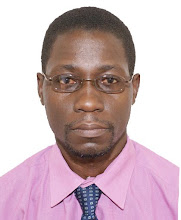The health sector has been named among the winners of the 2009/10 budget for claiming the “third largest” share of planned expenditure (11%), after works and transport (17%) and education (16%), (“Roads, education and health top budget spending”, The New Vision, Friday, June 12, 2009).
By determining “winners” and “losers” on the basis of only changes in taxes and budget share, this analysis ignores the importance of examining the priorities, policy pronouncements, new allocations, addressed needs, and percentage increases.
The way Uganda’s budget speeches are written and implemented makes it difficult to even identify the priorities. Hon. Syda Bbumba listed five priorities (which are too many), yet almost each of them is a collection of priorities.
For instance, under human development alone we have education, health, water, sanitation, nutrition, etc.
Indeed, no where has a government official ever told an audience that this or that is not a government priority! Of course, if everything is a priority, then nothing is.
Take last year, when the budget speech listed health as one of the priorities. For the first time, money was allocated for ARVs, to treat “all who need AIDS treatment”.
Then midyear, government stopped free ARVs from foreign donors. PHAs already on treatment were given ARVs from Quality Chemicals, which initially were meant to go to new patients. There was no explanation and about 250,000 PHAs who need treatment still cannot access it.
The promise to “urgently” establish minimum service delivery standards in the health centres; label drugs meant for the public health system; and focus additional resources on provision of basic health infrastructure, recruitment of health workers and provide medicines has turned out to be hot air.
Several months later, a survey HEPS-Uganda conducted for Ministry of Health showed that overall, key essential medicines were available in only about 46% of government health facilities. The duration of medicine stock-outs averaged about 73 days (about two and a half months) a year.
When health workers went on strike over pay, they were promised a salary increase in the 2009/10 budget. Instead, when the budget came, Hon. Bbumba announced a salary increase of just 5% across the board, without for any special consideration for health workers. Government health centres are understaffed.
National Medical Stores was the only supplier labelling medicines before last year’s budget; it is still the only one, a year later. Thus, about 70% of the medicines that come from other suppliers are not labelled and are available for theft.
A history of under-funding has made current budget increases seem like a drop in the ocean. Hon. Bbumba’s budget has increased the health budget by only Ushs 8.4 billion (1.3%). Yet, in 2006, HEPS-Uganda and Action Aid estimated the shortfall to be in excess of US$ 115 million (Ushs 230 billion) when ARVs are not included.
Even the accuracy of the reported 11% share going to health is disputable. The Budget Framework Paper shows health spending will amount to Ushs 636.9 billion, which is only 8.7% of the planned total expenditure of Ushs 7.33 trillion.
This share not only reveals a declining trend, having been at 10.8% in 2008/09, but also that Uganda will be moving further below the 15% target set by African leaders in the Abuja Declaration of 2001.
Health is the single most important aspect of a person’s life, and access to healthcare is a human right. It is estimated that at least 85% of Ugandans seek healthcare every year. And if health did not win, 25 million Ugandans did not.
Subscribe to:
Post Comments (Atom)

No comments:
Post a Comment